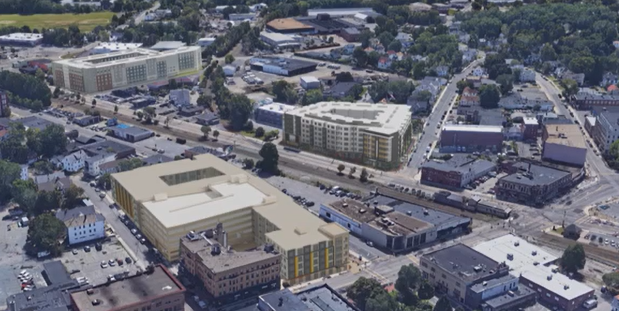New Framingham apartments may need to meet new standard for affordable housing

FRAMINGHAM — In an effort to create more affordable housing options, Framingham officials are considering a new policy that would require developers seeking to build apartments in the city to make at least 15% of their units affordable, including 5% that would accommodate an even lower income threshold.
More: Waverly Street property eyed for 176-unit apartment complex
Currently, Framingham requires that new projects include at least 10% affordable housing, which accommodates those who earn 80% or less of the area median income as defined by the U.S. Census.
Framingham Director of Planning and Community Development Sarkis Sarkisian said the city plans to hold a series of public hearings to discuss raising the city's mandatory percentage to 14% or 15%.
"Right now it is only 10%, and we want to increase that," he said.
More: City Council votes to enact nine-month moratorium on new apartment construction
In Framingham, a single-person household that earns $67,400 or less annually is eligible for affordable housing. That number rises to $77,000 for two-person households, $86,650 for three-person households and $96,250 for four-person households.
Sarkisian said that as part of the proposal, the extra 4% or 5% that gets added to the current affordable housing minimum will be aimed toward residents making 60% or less of the AMI, making it "very" affordable housing.
More: Framingham multi-unit housing moratorium gets 90-day extension
"That extra 5% needs to be at a lower market, meaning renters at 60% or less of the AMI," he said. "Those are the folks that are really struggling. With the cost of food and fuel and everything else, that cost for rent is just completely out of sight right now."
Increasing affordable housing stock is seen as critical for many Massachusetts communities, because under the 1969 Comprehensive Permit Act — better known as 40B — developers of affordable housing can override certain aspects of municipal zoning bylaws and other requirements if less than 10% of a community's stock is classified as affordable.
More: Even as a city, downtown Framingham has a community feel
Sarkisian said that while the city has been active in constructing more housing, its ratio of affordable housing stock has not changed significantly. About 10.7% of Framingham's housing stock is currently classified as affordable.
"Framingham has done a great job in meeting the smart growth initiative that the state has as far as getting apartments built," Sarkisian said. "We've added over 900 units of housing in the downtown. The issue is that we have stayed just above that 10%. We should have added more (affordable units), we are just staying even and we should be gaining."
In addition to raising the affordable housing percentage for future projects, the city is also considering adding a component that would make 20% of all units be considered "workforce" housing. This refers to housing for those who earn between 60% and 120% of AMI, and provides greater flexibility to affordable housing projects. It includes renters who earn too much to qualify for affordable housing but who still find market-rate apartment prices out of reach.
City Councilor George King said that while affordable housing is a top concern, he questions whether raising the minimum percentage of it for future proposals will make a significant difference.
"There is no question we need more affordable housing, but I'm not sure if the kind of affordable housing we need is going to be built," he said. "A lot of the housing classified as affordable is not affordable for a lot of people. We've built a lot of new buildings at 10% affordable housing, and I don't know too many people that have benefited from that number of units.
"How big of an impact can 5% more really make?"
At least two public hearings on the topic are planned. The City Council is holding one during its next meeting on Aug. 16, with a second scheduled to occur during the Aug. 18 Planning Board meeting.
"The purpose of the public hearing is to get info from the development community," Sarkisian said. "I don't think they have an issue with the additional 4% to 5% of affordable housing. I think the issue they might feel stronger about is the 20% workforce housing."
The Planning Board will make a recommendation on the proposal following the public hearing process, at which point it will be turned over to the City Council. Should the council vote in favor of it, the proposal then goes to Mayor Charlie Sisitsky's office for final approval.
This article originally appeared on MetroWest Daily News: Framingham to consider increasing affordable housing requirements
